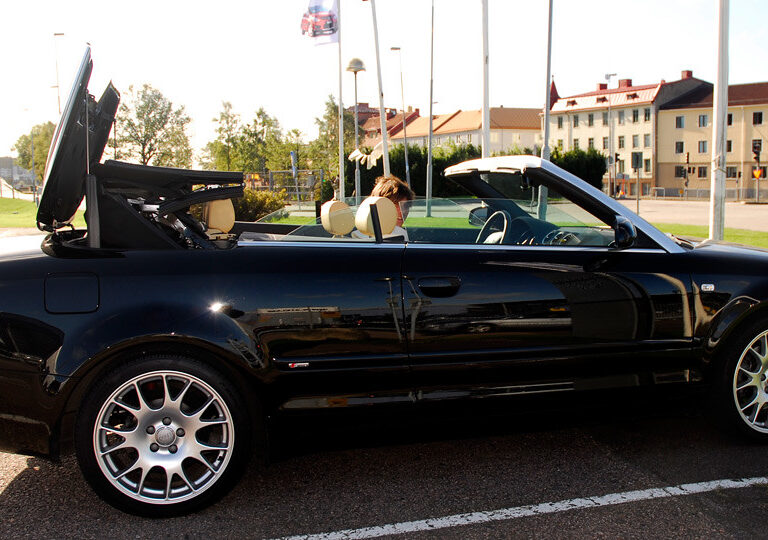Once Your Auto Insurance Expires, What Happens Next?
It’s never a smart idea to let your auto insurance coverage lapse, whether you do it on deliberately or by mistake. If you get into an accident, you won’t have financial protection if your insurance has expired.
Perhaps you ran out of money last month. Your car could be having problems. Perhaps you simply forgot. In either scenario, your coverage was terminated because you failed to make your auto insurance payment on time. What happens afterwards if your auto insurance expires?
Since there is always a second chance, it might not seem like a huge deal. In actuality, driving without auto insurance is a significant concern. Even a minor error can result in:
- Rates going up
- Forced to buy expensive insurance
- Your car will be taken away.
- A suspended license or a fine that costs a lot
- Huge financial responsibility for any costs that come up in an accident that they caused.
However, keep calm. We’ll tell you what to do if your auto insurance lapses, how to prevent paying extra fines, and what you can do to make sure it doesn’t happen again.
What is a lapse in car insurance?
When you own an automobile but don’t have insurance on it, this is known as a lapse in coverage. A lapse in coverage could occur if you fail to pay your auto insurance premiums or if your insurer decides to no longer provide you with coverage. Without insurance, you may be financially accountable for any injuries or property damage caused in an accident in which you are involved.
Car insurance can lapse if you:
- You don’t have enough money to pay your bill.
- You sold the only car you had.
- The only car you had broke down.
- Your only car got into a wreck.
- You won’t be able to drive for a long time.
- You are leaving your home for a while.
- You missed paying your bill.
How Long Can Car Insurance Lapse?
That depends on where you live and what your situation is.
Many policies have grace periods of three, ten, or even more days for premium payments to be made after the due date before cancellation. Yet, it is not the case for everyone.
Insurance companies in the state of Virginia, for instance, have the right to terminate your coverage for failing to pay premiums if payments are even one day late.
Don’t hesitate to contact your insurance provider if you receive a notice that you’re behind on your premium payments. They’ll be able to figure it out. Find out how long you have until your auto insurance policy expires and discuss alternative payment options with the insurance agent even if you can’t pay the bill in full right away.
Forgetting to renew your auto insurance because of the high cost is not the end of the world. Get a clean slate by comparing auto insurance quotes on Compare.com.
What happens if you don’t pay your car insurance?
The website The Balance recommends never letting your car insurance lapse. Without insurance, you run the most risk if you are responsible for an accident. The costs of repairs to damaged property and medical care will be entirely at your own expense. You run the danger of a fee increase if you let your coverage lapse.
No matter what caused your insurance to lapse, your driving privileges could be taken away by the state. There could also be a fee to get them back.
Only New Hampshire does not mandate that drivers carry auto insurance. Driving without the bare minimum of insurance is illegal.
According to Progressive, if you are caught driving without insurance in almost any state that has minimum coverage, your registration and license will be suspended and you will be required to pay daily fines until you can provide evidence of insurance. Besides the fee, you’ll need to pay to get your license and registration reinstated.
Does car insurance have a grace period?
A lapse in protection is possible if you miss a monthly vehicle insurance payment. Depending on how long it’s been, your insurance carrier might give you a reprieve. Your insurance provider must provide you with notice under state law before they can terminate your policy. Your auto insurance payment due date is between 10 and 20 days after the bill is sent, depending on your location.
What do I do if my car insurance is no longer valid?
Have no fear. Get it fixed as soon as possible so you may drive again without worrying. A few things to keep in mind are as follows:
Please contact your insurance company for further assistance. Investigate what went wrong. Do you need to make up a missed payment?
See if you can reinstate your insurance. If the issue involves how to make a payment, you should contact your auto insurance carrier immediately. They might be able to reinstate your policy so that you can continue receiving coverage if it hasn’t been too long since you stopped paying premiums.
Check the market for better deals. You should check into other options for auto insurance if your current provider is unwilling to renew your policy.
How can I make sure my car insurance doesn’t lapse?
Making ensuring your auto insurance doesn’t lapse requires you to take preventative measures. To avoid having your insurance coverage lapse and the consequences that come with it, consider the following:
Do the responsible thing and pay your auto insurance on time. Failure to timely pay auto insurance premiums is a leading source of coverage gaps. Sign up for the auto-payment option provided by your business if you have problems keeping track of when your payments are due. As an added incentive, several insurance providers offer discounts to customers who enroll in automatic payments. If you can’t pay your account in full and need more time to make arrangements, give the provider a call ahead of time to see if a payment plan is possible.
Many of us are so occupied throughout the day that we don’t remember to check our mail until we get home, so it’s a good idea to switch to paperless billing. If you receive the majority of your bills digitally via email, paperless billing may be more convenient for you. There is no risk of missing a payment due to forgetting an envelope on the counter.
What happens if I get into an accident after my coverage has run out?
If you choose to drive without insurance and are involved in an accident, there are a few possible outcomes that could occur, according to NerdWallet.
If you are hit by a driver who carries insurance, that policy may cover your losses. If you cannot produce proof of current insurance, you are not automatically at fault. The police officer will likely judge you at fault if it is unclear who caused the accident.
Drivers without insurance may not be able to sue the negligent motorist for the full amount in several states. When driving in a No Pay, No Play state, motorists without insurance are barred from suing for non-monetary damages like pain and suffering.
Without auto insurance, the cost of repairs would have to come straight out of your own pocket in the event of an accident. If you cause harm to another person’s vehicle or cause them to incur medical expenses, that person may file a lawsuit against you. If you don’t settle out of court, the other motorist may seize your belongings.
You should always be insured if you pay your monthly premiums on time and know when your insurance expires. Automatic payments and policy renewals are options in most situations. To avoid a lapse in coverage if you switch insurance providers, coordinate the start date of your new policy with the expiration date of your previous policy.
How do I get rid of my car insurance if I no longer need it?
If you aren’t going to be driving for an extended period of time and don’t require insurance, as if you move abroad, you can put your policy on hold. Your local DMV should be able to provide you an affidavit stating that you will not drive your vehicle while the insurance is canceled.




